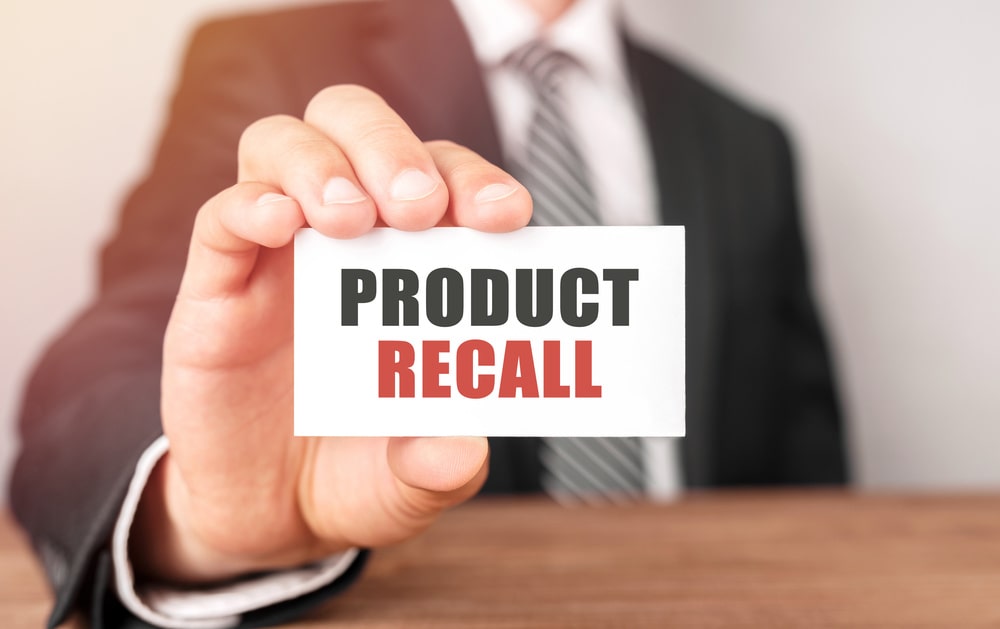WHAT BUSINESS INSURANCE DO I NEED FOR MY TECH-STARTUP BUSINESS?
IN THIS BLOG
WHAT TYPES OF INSURANCE DO I NEED FOR MY SMALL BUSINESS?
TYPES OF INSURANCE A SMALL BUSINESS SHOULD HAVE
Insurance for Tech-Startup Business is a type of insurance that protects newly built businesses. Tech Startups is a new company or industry that was formed by enthusiasts and had the intention to provide new technology products. Besides, they also offer existing technological products but in new different ways. A tech startup business is a type of business that focuses on technologies. To give an example, mobile services, computers, and other technological advancement devices are actually in the industry for so long.
INSURANCE FOR TECH-STARTUP BUSINESSES
1. GENERAL LIABILITY INSURANCE FOR TECH-STARTUP BUSINESSES
General Liability insurance is one of the types of insurance a small business owner must-have. Generally, This covers the liability of the insured against a third party person. It covers bodily injury and property damages the small business caused to others. Furthermore, general liability insurance would cover the insured against legal claims a third party person files against the insured business owner.
A. BODILY INJURY
This coverage would cover the insured against bodily injury claims that arise from the operation of the business—for further illustration, considering that the tech business has an unfinished robot, where they neglect to store it in a safe place. Besides, a child of the customer takes his curiosity into action and touches the incomplete robot that still has an open wire on it. The child procures a mild burn on his bare hands, and the customer demands the insured to pay for the injury of the child. In this situation, the insurance will kick in and will pay for the damage of the other person on a specific limit of the insurance.
B. PROPERTY DAMAGES
This coverage could cover the insured, against a property damages claims from a third party person. For further illustration, suppose that the startup business is having trouble navigating their newly built drone. However, they still test it and assume that it will work once it flies at a higher distance. They test it; however, the drone disconnects from the radar of the controller, and falls from a height, and crashes on someone’s roof. Due to the damages to the roof, the owner demands a payment for the repair of the roof. In this case, the insurance will kick in and will cover the cost of repair for the damages of the third party’s roof.
C. ADVERTISING INJURY COVERAGE
Advertising Injury Coverage would cover the insured against advertising injury that is filed by a third party person against the insured.
D. MEDICAL EXPENSES
Medical expenses coverage would cover the insured against the medical financial responsibility of the insured to a third party person. However, coverage would only be applicable if the third party person agreed not to file a legal case against the insured.
2.COMMERCIAL PROPERTY INSURANCE FOR TECH-STARTUP BUSINESSES
Commercial property insurance is a type of insurance that is designed to cover the commercial properties of the insured business. This insurance can cover two types of insured’s property. It includes:
A. BUILDING PROPERTY OF THE BUSINESS
- This coverage will cover the building that is described on the declarations of the insured, including,
- The completed additions on the building
- Fixtures
- Additionally, Permanently installed: Machinery and Equipment
- Personal properties that are used to maintain the business, including,
- Floor coverings and;
- Fire extinguisher
- Outdoor furniture
- Appliances used for ventilation, cooking, and dishwashing.
B. BUSINESS PERSONAL PROPERTY
Personal property of the business that is located inside the described building of the company on the declarations.
- It can also cover the property of the business that are outside the building but are within the 100 feet parameters of the company.
- Furniture and fixtures of the business
- Machines and equipment of the business
- Stock
- All the personal property owned by the insured that is used for operating the business
- Labor materials
- The improvements and betterment the insured made on the rented business property.
C. PROPERTY NOT COVERED UNDER THE COMMERCIAL PROPERTY INSURANCES
- Coins, accounts, bills, currencies, and food stamps
- Autos
- Foundations of the structure
- Bridges, roadways, walks, patios, and other paved surfaces.
- Cost of excavation
- Contraband, or property in the course of illegal smuggling
- Personal property that is airborne and waterborne
- Properties that are covered on other forms of insurances
- Walls that are not part of the building
- Underground pipes and drains
- Electronic data
- Cost to replace and restore the information of valuable papers
- Vehicles and self-propelled machines
C. PROPERTY NOT COVERED UNDER THE COMMERCIAL PROPERTY INSURANCES
Coverage for these properties will only be applicable if the damages are due to named -peril only. Covered perils include,
Losses due to fire, hailstorm, smoke, vandalism, theft, smoke, freezing, volcanic eruption, damages due to weight of ice, snow or sleet, and other more.
3. PROFESSIONAL LIABILITY INSURANCE
Professional liability insurance, also called errors and omission, could cover the insured against professional liability claims. This E&O could cover the insured if the client accused the insured of making a mistake on providing a piece of advice and causes them a financial loss. Additionally, professional liability insurance can be taken into many forms depending on the profession of the insured.
Errors and omissions are for professionals who have specializations and expertise on specific practices. This profession includes accountants, architects, engineers, medical professionals, business consultants, and other more jobs. Besides, it can also protect Information technology professionals, which means that this is essential insurance for a tech startup business.
4. CYBER LIABILITY INSURANCE FOR TECH-STARTUP BUSINESSES
Cyber Liability insurance can protect the insured company against data breaches, or if a hacker compromised sensitive information. We all know that rivalries are not new in the technological advancement industry. Thus, stealing further information from other firms is given in this kind of industry. It is for the reason that new ideas can overwhelm the previously domineering technology. Therefore, a tech startup business needs to have this insurance, because this insurance can cover the expenses of restoring the business’s sensitive computer data information, which can be quite expensive for a startup business.
COVERAGE OF CYBER LIABILITY INSURANCE
A.NOTIFICATION COST
covers the cost of informing the customer of the business about the data breach, and their information has also been compromised.
B. LOSS TO ELECTRONIC DATA COVERAGE
can cover the expenses for restoring the compromised computer data of the business, such as sensitive information, confidential information, employees, and client’s information.
C. PRIVACY AND NETWORK SECURITY LIABILITY
Privacy and Network Security Liability can cover the legal obligation of the insured against a claim, alleging the insured business of failing to protect confidential information appropriately.
D. ELECTRONIC MEDIA LIABILITY
Electronic Media Liability can cover the insured against slander claims of third party people. These acts are applicable for coverage if the losses are due to the business’s irresponsible data publication on the internet.
E. REGULATORY PROCEEDINGS
In the United States law, there are fines imposed penalties to any business, who neglect to provide proper protection to sensitive electronic data of the company. These penalties are applicable for coverage by cyber liability insurance.
5. WORKERS COMPENSATION INSURANCE FOR TECH-STARTUP BUSINESSES
Every state in the United States requires every employer to carry workers’ compensation insurance. Workers’ compensation insurance is a type of insurance that can protect the employer against losses arising from the workers. Besides, if a business or an employer does not have workers compensation insurance, and the employee procures an injury or occupational disease, the government will fund the employee to sue the uninsured employer. It will demand reimbursement for the benefit of the employee.
BENEFITS OF WORKERS COMPENSATION
A.MEDICAL
This benefit provides unlimited medical care benefits to the injuries of the workers. Medical expenses can apply to the workers who procure an occupational disease; the losses can be covered on full, or until a specific amount of time.
B. INCOME REPLACEMENT
Workers’ compensation can provide a weekly income when the worker becomes disabled as a result of a covered injury. The benefit that will be given to the employee will be based on the employee’s average weekly wage.
C. SURVIVORS BENEFITS
In the event the employee procures a work-related death, this insurance can provide the surviving beneficiaries a survivor income benefit. Besides, this benefit can only be given to the surviving spouse of the insured and its dependent children. The benefits that will be given only to the spouse and the children will be that of 66% of the worker’s average weekly wage. Besides, this coverage can also provide burial benefits, on which the insurer will pay the benefits to the person who pays the expenses for the funeral of the deceased worker.
D. REHABILITATION
A worker can procure an injury on where he will not be able to function a he was before the accident. This kind of accident is the one that causes the employee to become disabled. This insurance can cover the cost of the employee’s enrollment fee to a vocational school to train the disabled employee for a new occupational function based on his current state.
6. EMPLOYMENT PRACTICES LIABILITY INSURANCE FOR TECH-STARTUP BUSINESSES
Employment practices liability can cover the business against legal claims by the employees. No employer is immune from a lawsuit that was filed by an employee due to a violation of their rights as a worker of the company. This can cover the insured from the cost of settling a lawsuit claims. Employment Practices Liability Insurance can protect these kinds of lawsuits against the employer, including:
- Alleged sexual harassment of the employer to the worker
- Wrongful termination
- Discrimination
- Wrongful disciplinary action to the employee
- Infliction of emotional distress
- Failure to promote the employee
- Mismanagement of employees benefit plan
Considering that the employer is lessening a specific amount from the salary of the employee due to a benefit plan. However, the employee discovered that the employer is not paying anything for their plan. This is considerable as violating the employee’s right to benefits, and the employer can be held legally liable for this act.
7. KEY PERSON INSURANCE INSURANCE FOR TECH-STARTUP BUSINESSES
This insurance is a type of insurance that can protect the business against financial loss, that could arise from the death or incapacity of important members of the company. Additionally, the key person is an individual whose knowledge and skills are essential to the business, for the continued financial success of the business. These types of losses could be covered under this insurance policy. Losses due to the key person’s extended absences due to the inability to work. This can provide a financial assistant to hire and train temporary personnel to carry the work.
- This can protect business profits
- Can protect shareholders
- Insurance protection to all person who purchases the key insurance
8. COMMERCIAL AUTO INSURANCE
Commercial auto insurance is a type of insurance that can cover the insured business against losses that could occur while the vehicle is conducting business. This insurance can cover a wide variety of commercial vehicles, including trucks and other vehicles that are purposely for business use.
WHAT DOES COMMERCIAL AUTO INSURANCE COVER?
A.LIABILITY COVERAGE
Bodily Injury
This can cover the insured against bodily injury claims from a third party person if the insured is legally responsible for the injury. This can cover the insured from legal defenses and pays for the bodily injury of the other person.
Property Damages
This coverage can protect the insured business against property damages claims from a third party person. Additionally, it can cover the insured from the cost of repair for the other person’s property damages, only if the insured is legally liable for the damages. Also, it can cover the insured from settling legal claims and provides legal defenses.
B. MEDICAL PAYMENTS
This coverage can provide payments for the medical expenses of the driver and its passengers if the injury that they incur is from a covered cause of accidents. Furthermore, this coverage will be applicable, regardless of who’s at fault for the accident.
C. COLLISION COVERAGE
This coverage of commercial auto insurance would cover the insured vehicle against collision damages. It could help pay or replace the damages to the car due to colliding with another car. Besides, it can also cover damages that are due to colliding with other objects and overturning of the vehicle. For further illustration, suppose that the insured car procures damages due to accidentally hitting with the lamp posts. The collision coverage of commercial auto insurance would cover the cost of repair for the vehicle.
D. COMPREHENSIVE COVERAGE
This coverage could help the insured for the repair or replacement of the vehicle if the damages to the vehicle are due to other-than-collision damages. Comprehensive sometimes called as other than collision, this typically covers costs to the car that is due to falling objects. Besides, it can also cover damages that are due to animal damages, fire, flood, and theft. This can also include other damages, contact our affiliated agents now for more information.
E. UNINSURED MOTORIST AND UNDERINSURED MOTORIST COVERAGE (UM/UIM)
Uninsured motorist coverage could help pay for the injuries of the insured and damages to their property, if in any circumstances that the person at-fault doesn’t have liability insurance to cover the insured. While underinsured motorist coverage can cover the insured that procures bodily injury and property damages, that was due by a driver who has liability insurance, but not enough to cover all the losses of the insured.





